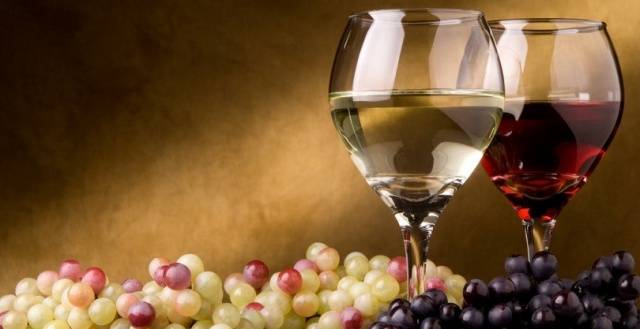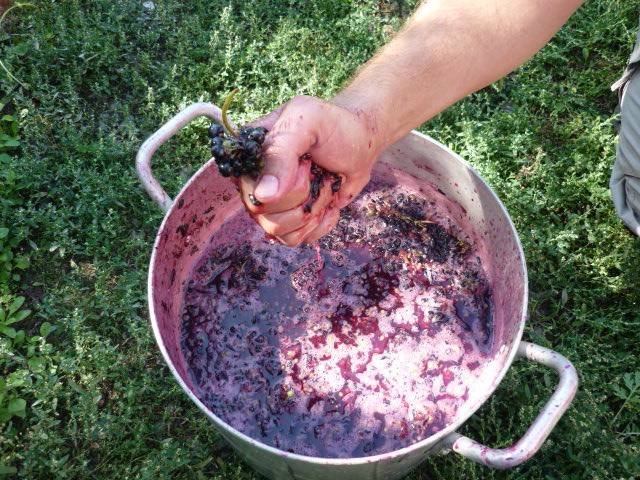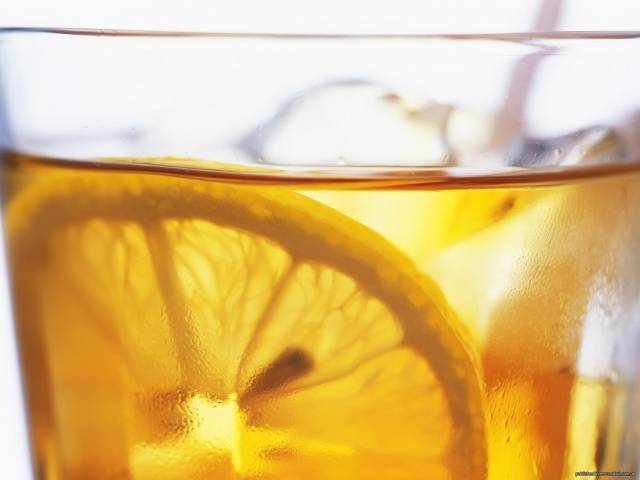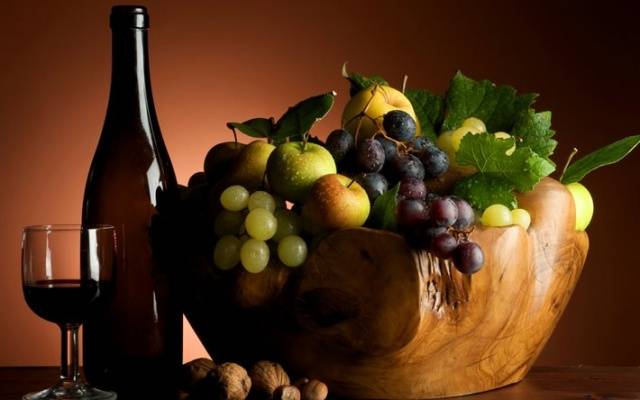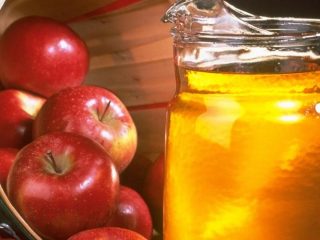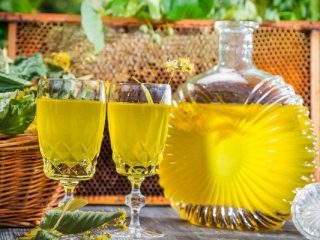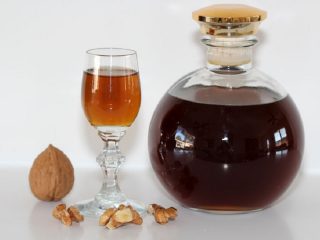Content
The history of grape wine goes back more than 6 thousand years. During this time, the cooking technology has changed several times, many recipes have been invented. Today, every housewife who has a vineyard on her site tries to make homemade wine from grape juice, because for sure this tasty and healthy alcoholic drink will come in handy for the table. How to properly prepare such a natural product with your own hands at home will be discussed further in the section.
Popular grape wine recipes
The grapes were given by nature itself in order to make wines from it: berries harmoniously combine sweetness and light sourness. Their juiciness allows you to get the purest juice with a minimum amount of cake. Grape juice ferments quickly enough, as a result of which it becomes a very tasty and light alcoholic drink.
The easiest grape wine recipe
To make a great, light wine, you only need two ingredients: fresh grape juice and sugar. So, for 10 kg of juice you need to add 3 kg of granulated sugar. The process of making grape wine is simple, but it will take a lot of time:
- Mix the grape juice in a large container with sugar, then wait until the crystals dissolve.
- Pour sweet grape juice into three-liter jars, leaving some free space in the containers.
- On the neck of each can, put on a rubber medical glove, pre-pierced with a needle in several places. You can replace the glove with a special cap with a water seal.
- The glass joint and gloves on the neck of the can must be sealed with plasticine or tape so that oxygen does not get into the container.
- In room conditions, the juice will soon begin to ferment, releasing carbon dioxide and forming a foam. A swollen glove will indicate fermentation.
- After about 5 weeks, the rubber glove on the can will deflate, which means the fermentation process is complete.
- Pour the finished wine into pre-sterilized bottles. It is important to prevent foam or sediment from getting into the clean bottle.
- Bottles with grape wine are hermetically sealed with a cork and sent to the cellar for later storage.
The proposed recipe is a classic, and the described preparation process is the basis of winemaking, therefore, having decided to prepare an alcoholic drink from grape juice, it is imperative that you familiarize yourself with the proposed fermentation rules.
You can make light grape wine from sour berries by adding water. This recipe is clearly demonstrated in the video:
Fortified wine made from grape juice
For some winemakers, an important criterion is the strength of the resulting product. It is, of course, possible to increase this indicator by adding alcohol, but this will not be entirely competent and correct. Experienced winemakers know that the degree of wine needs to be increased with sugar. Indeed, when processing sugar, yeast emit not only carbon dioxide, but also alcohol.
Prepare fortified grape wine as follows:
- Sort the grapes, removing any spoiled or rotten berries.There is no need to wash the bunches, as there are yeast bacteria on the surface of the grapes, which will directly participate in the process of making wine.
- All berries must be crushed with a crush or hands. If desired, you can get seeds from the berries, since in the finished wine they will be reflected with a slight bitterness.
- If the seeds are left in the pulp for making wine, then care must be taken to preserve their integrity. Crushed bones will be a source of tannins, which are very bitter.
- Transfer the grated grapes to an enamel or glass dish. Cover the neck of the container with gauze.
- In a dark place at room temperature, the grapes will begin to ferment within a day. The pure juice will settle down, and the pulp will rise above the juice in a thick head. It must be removed.
- The optimum temperature for fermentation is + 15- + 250C. The temperature below the noted chapels leads to the fact that the juice sour, at a temperature above the indicated values yeast perishes.
- In a day, active fermentation of grape juice will be observed. At this time, you need to add the first portion of sugar (150-200 g per 1 liter of juice).
- Cover the container with a rubber glove and leave for 4-5 weeks to ferment.
- When the yeast has processed all the sugar, carbon dioxide will cease and the glove will deflate. At this time, add another 50 g of sugar for every 1 liter of wort.
- Sugar should be added regularly until the wine is consistently sweet. This will mean that the alcohol concentration is close to 15% and the yeast died under such conditions.
- For a month, grape alcohol must be infused under a glove for additional fermentation, then removed from the sediment and poured into sterilized bottles. Seal containers tightly and store.
Information on how to properly remove wine from the lees can be found in the video:
This recipe reflects in as much detail as possible all the conditions and rules for making homemade grape wine. By adhering to them, even a novice winemaker will be able to get high-quality, natural fortified wine from grapes.
Homemade wine from purchased juice
Most city dwellers do not have their own vineyard and it is very expensive to prepare wine from fresh purchased grapes, since a large amount of waste is generated during the preparation process, and the price of such raw materials "bites". In this case, you can make grape wine from ready-made juice, which is sold in the nearest store.
To prepare homemade wine according to the proposed recipe, you will need 1 liter of grape juice, 200 g of sugar and wine yeast in an amount of 4 g. From such a set of products in 2 months, through simple manipulations, you can get an excellent natural wine.
You can make wine from ready-made, purchased grape juice as follows:
- pour the juice into a glass bottle or jar;
- dissolve yeast in a small amount of warm juice or water;
- when the yeast begins to "walk", the liquid must be carefully poured into a container with juice;
- add sugar to the wort;
- cover the container with a glove or a lid with a water seal;
- infuse juice in a dark and warm room;
- when the juice stops fermenting, it can be poured into a sterilized bottle and hermetically sealed, and then sent for storage.
Such a recipe can be a real boon for a novice housewife who does not have her own vineyard, but wants to surprise her family and friends with her wine-making abilities.
Original recipes for grape wine
A separate niche in winemaking is occupied by wines prepared with the addition of spices. Several traditional and readily available condiments make for a stunningly aromatic wine with a unique flavor and blend. There are a wide variety of such recipes. We will try to briefly describe how to make a wine of amazing taste from homemade grape juice:
Italian wine
This recipe combines several different spices and non-standard products for winemaking at once. So, one recipe will require 10 liters of fresh grape juice, 50 g of ground cinnamon, 30-35 g of cloves. Unique ingredients in the recipe are wormwood roots (7 g), ginger (5 g) and chilli peppers (4 g). The excellent flavor is also based on the use of nutmeg (5 g). Finding all of the listed products is not at all difficult by looking at the nearest supermarket. You can find wormwood at the pharmacy. At the same time, the combination of products allows you to get an amazing Italian wine that has no analogues.
It is quite simple to prepare it even for a novice winemaker:
- Lightly dry the spices in a preheated oven. Crush them and put them in a cloth bag.
- Pour the grape juice into a barrel or glass container.
- Dip the tied bag of spices into the juice.
- Close the juice with a lid with a water seal and let it stand for several weeks until the end of fermentation.
- Remove the finished wine from the sediment and pour into glass bottles, tightly closing them.
You can use dark and light grapes in the recipe. As a result of preparation, a dry wine with an amazing aroma will be obtained. A slightly less aromatic grape wine is obtained even if you use only grape juice and cloves. The principle of making such wine is similar to the technology proposed above.
Grape wine with lemon
The following recipe is unique. Its taste combines a pleasant aroma of grapes and lemon, as well as notes of aromatic herbs. To prepare such a wine, you will need 10 liters of grape juice, the zest of one lemon, a little mint and lemon balm.
The process of making wine can be briefly described by the following sequence of actions:
- Peel the lemon. Dry the zest, chop it, put it in a cloth bag.
- Dip the lemon zest into a container with grape juice.
- Close the wine with a water seal for successful fermentation.
- When the wine is fermented, add mint and lemon balm, sugar to taste.
- Insist the wine for a month, then pour it into glass bottles and send it to the bins for further storage.
Grape wine with the addition of mint, lemon zest and lemon balm will surely remain a taste mystery for tasters.
Apple-flavored grape wine
Winemakers practice the preparation of apple and grape wine, but few succeed in combining these two products in one alcoholic beverage. And the recipe for making grape wine with apple flavor is very simple:
- In the fermenting grape juice, you need to dip a few apples cut in half.
- After a few days, the apples must be removed from the must and replaced with new, fresh fruit.
- Change apples until fermentation is stopped.
Most of the original recipes suggested do not use sugar. This means that the finished product will be acidic and low in alcohol. In general, wines with the addition of spices and herbs are very useful and can be used for medicinal purposes.
Conclusion
When grapes are ripening in the garden, it is imperative to take care not only of making compotes or jam, but also of making wine. It will certainly come in handy even in non-drinking families, complementing various dishes on the festive table and replacing other alcohol for guests who have come. Grape wine turns out to be surprisingly light and healthy at the same time. For its preparation, you can choose a classic or a very original recipe. In any case, relatives and friends will appreciate the efforts and amazing blend of natural wine, prepared with love.

